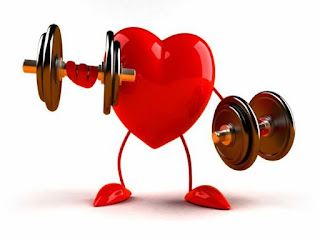Tips for living a healthy life
Health:
Health is a state of complete physical, mental and social well-being and not merely the absence of disease or infirm.
In this busy, work-obsessed culture, people frequently forget to show the necessary TLC to their minds and bodies. Grabbing food that's easy instead of healthy is a frequent symptom of life-on-the-go. But let’s be honest: everyone can afford to spend a little more energy in maintaining their overall wellness. While we know seeking counsel from a personal nutritionist is not in the budget for most, busy. "Healthy living" to most people means both physical and mental health are in balance or functioning well together in a person. In many instances, physical and mental health are closely linked, so that a change (good or bad) in one directly affects the other. Consequently, some of the tips will include suggestions for emotional and mental "healthy living."
Life is beautiful and you don’t want to bog yourself down with unnecessary health problems. Today, your vital organs (kidney, heart, lungs, gall bladder, liver, stomach, intestines, etc) may be working well, but they may not be tomorrow. Don’t take your good health today for granted. Take proper care of your body.
Good health isn’t just about healthy eating and exercise – it also includes having a positive mental health, healthy self-image and a healthy lifestyle.
Tips:
1. Drink more water. Most of us actually don’t drink enough water every day. Water is essential for our body to function – Do you know over 60% of our body is made up of water? Water is needed to carry out our body functions, remove waste and carry nutrients and oxygen around our body. Since we lose water every day through urine, bowel movements, perspiration and breathing, we need to replenish our water intake.
2. Assess your activity. How much physical activity do you get in a typical week? How intense is that activity? How much variety do you get in your activity, and how much do you enjoy it? The CDC recommends that adults get at least two and a half hours per week of moderate-intensity aerobic activity or one hour and 15 minutes per week of vigorous-intensity aerobic activity, plus muscle-strengthening activities at least two days per week.
3. Eat three meals a day (breakfast, lunch, and dinner); it is important to remember that dinner does not have to be the largest meal.
4. Get enough sleep. When you don’t rest well, you compensate by eating more. Usually it’s junk food. Get enough rest and you don’t need to snack to stay awake. Also, lack of sleep causes premature aging, and you wouldn’t want that.
5. Check your mood and energy. Healthy living includes emotional wellness and adequate rest. How has your mood been lately? Are you experiencing any symptoms of depression or anxiety? Do you usually sleep well for seven to eight hours a night?
6. Exercise, Not just a few times a week, but every day. Movement is life. Research has shown that exercising daily brings tremendous benefits to our health, including increase of life span, lowering of risk of diseases, higher bone density and weight loss. Increase activity in your life. Choose walking over transport for close distances. Climb the stairs instead of taking the lift. Join some aerobics classes.
7. Choose foods that are low in saturated fats, trans fats, cholesterol, salt (sodium), and added sugars; look at the labels because the first listed items on the labels comprise the highest concentrations of ingredients.
8. Love yourself. How much do you love yourself on a scale of 1-10? Why? How can you love yourself more starting today? In Day 20 of 30DLBL, we explore the notion of self-love and get you started on loving yourself more.
9. Stop eating when you feel full. Many of us rely on external cues to tell when we’re full, such as whether everyone has finished eating, whether your plate was empty or not. These are irrelevant – you should look at internal cues, such as whether your stomach feels full or not. Don’t feel obligated to eat just because there’s still food at the plate. Personally I like to stop when I feel about 3/4 full – if I eat till I’m totally full, I feel uncomfortable as my digestive system goes into overdrive. Use your gut as your indicator (literally).
10. Control portion sizes; eat the smallest portion that can satisfy hunger and then stop eating.

No comments:
Post a Comment